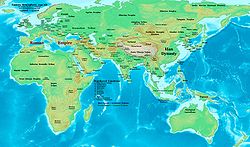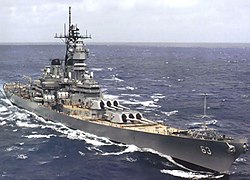Portal:History
The History Portal
History is the systematic study of the past, focusing primarily on the human past. As an academic discipline, it analyzes and interprets evidence to construct narratives about what happened and explain why it happened. Some theorists categorize history as a social science, while others see it as part of the humanities or consider it a hybrid discipline. Similar debates surround the purpose of history—for example, whether its main aim is theoretical, to uncover the truth, or practical, to learn lessons from the past. In a more general sense, the term history refers not to an academic field but to the past itself, times in the past, or to individual texts about the past.
Historical research relies on primary and secondary sources to reconstruct past events and validate interpretations. Source criticism is used to evaluate these sources, assessing their authenticity, content, and reliability. Historians integrate the perspectives of several individual sources to develop a coherent narrative. Different schools of thought, such as positivism, the Annales school, Marxism, and postmodernism, have distinct methodological approaches.
History is a broad discipline encompassing many branches. Some focus on specific time periods, such as ancient history, while others concentrate on particular geographic regions, such as the history of Africa. Thematic categorizations include political history, military history, social history, and economic history. Branches associated with specific research methods and sources include quantitative history, comparative history, and oral history.
History emerged as a field of inquiry in antiquity to replace myth-infused narratives, with influential early traditions originating in Greece, China, and later in the Islamic world. Historical writing evolved throughout the ages and became increasingly professional, particularly during the 19th century, when a rigorous methodology and various academic institutions were established. History is related to many fields, including historiography, philosophy, education, and politics. (Full article...)
Featured picture
Did you know (auto generated)

- ... that at over 400 pounds (180 kg), Desmond Watson is one of the largest players in NCAA Division I football history?
- ... that according to the official history of the Song dynasty, Zhao Kuangyin's soldiers stormed his bedroom and proclaimed him emperor, to his surprise?
- ... that American Colossus is a biography of a man who was "the most famous sportsman in the world" and "the most forgotten great athlete in American history"?
- ... that the government of Victoria, Australia, has a program to remove 110 level crossings by 2030, the fastest rate in the state's history?
- ... that BoysTown was reported as having the largest case of child abuse in Australia's history?
- ... that a historical society celebrated the 50th anniversary of its acquisition of Armstrong House by hosting a murder mystery?
Irataba (Mohave: eecheeyara tav [eːt͡ʃeːjara tav], also known as Yara tav, Yarate:va, Arateve; c. 1814 – 1874) was a leader of the Mohave Nation, known as a mediator between the Mohave and the United States. He was born near the Colorado River in present-day Arizona. Irataba was a renowned orator and one of the first Mohave to speak English, a skill he used to develop relations with the United States.
Irataba first encountered European Americans in 1851, when he assisted the Sitgreaves Expedition. In 1854, he met Amiel Whipple, then leading an expedition crossing the Colorado. Several Mohave aided the group, and Irataba agreed to escort them through the territory of the Paiute to the Old Spanish Trail, which would take them to southern California. Noted for his large physical size and gentle demeanor, he later helped and protected other expeditions, earning him a reputation among whites as the most important native leader in the region. (Full article...)
On this day
March 31: Cesar Chavez Day in various U.S. states (1927); International Transgender Day of Visibility
- 1854 – U.S. Navy Commodore Matthew C. Perry (Japanese depiction pictured) and the Tokugawa shogunate signed the Convention of Kanagawa, forcing the opening of Japanese ports to American trade.
- 1959 – After a two-week escape journey from Tibet, the 14th Dalai Lama reached the Tawang Monastery in Arunachal Pradesh in India.
- 1964 – The Brazilian Armed Forces overthrew President João Goulart, establishing a military dictatorship that lasted 21 years.
- 2004 – The Old National Library Building in Singapore was closed to make way for a tunnel, despite widespread protests.
- Guru Angad (b. 1504)
- J. P. Morgan (d. 1913)
- Ewan McGregor (b. 1971)
- Ahmad Sayyed Javadi (d. 2013)
Selected quote
If you wish to avoid foreign collision, you had better abandon the ocean.
— Henry Clay, American statesman
Related portals
More Did you know...
- ... that, when Ghenadie Petrescu (pictured) was ousted from his post of Metropolitan-Primate, Romania experienced protests and riots?
- ... that the British destroyer HMS Highlander escorted Convoy SC 122 through the largest convoy battle of World War II in March 1943 and was unsuccessfully attacked by U-441 and U-608?
- ... that in 1911, John Gaunt's second biplane nearly crashed because a bystander bent the aircraft's elevator before a flight?
- ... that Themistokli Gërmenji, an Albanian nationalist, received the French Croix de Guerre in November 1917, but was executed shortly thereafter by a French military court?
- ... that fish-knives inscribed with Elokeshi's name were sold after her husband decapitated her with a fish-knife following her adulterous affair with a Hindu head-priest?
- ... that the ancient Roman dancer Galeria Copiola reached the age of 104?
- ... that to escape burning at the 1393 Bal des Ardents Charles VI of France huddled under the gown of the Duchesse de Berry, while a lord leaped into a wine vat?
- ... that a junior officer on the USS Ancon refused King George VI entry to the ship's intelligence centre because no one told him the King "was a Bigot"?
Topics
Categories

History • By period • By region • By topic • By ethnic group • Historiography • Archaeology • Books • Maps • Images • Magazines • Organizations • Fictional • Museums • Pseudohistory • Stubs • Timelines • Chronology • People • Wikipedia historians
WikiProjects
![]() WikiProject History •
Ancient Near East • Australian History • Classical Greece and Rome • Dacia • Former countries • History of Canada • Chinese history • European history • Heraldry and vexillology • Indian history • Jewish history • Medieval Scotland • Mesoamerica • Military history • Middle Ages • History of Science
WikiProject History •
Ancient Near East • Australian History • Classical Greece and Rome • Dacia • Former countries • History of Canada • Chinese history • European history • Heraldry and vexillology • Indian history • Jewish history • Medieval Scotland • Mesoamerica • Military history • Middle Ages • History of Science
WikiProject Time • Days of the Year • Years
WikiProject Biography • Composers • Political figures • Saints • United States Presidents
Things you can do
 |
Here are some tasks awaiting attention:
|
Associated Wikimedia
The following Wikimedia Foundation sister projects provide more on this subject:
-
Commons
Free media repository -
Wikibooks
Free textbooks and manuals -
Wikidata
Free knowledge base -
Wikinews
Free-content news -
Wikiquote
Collection of quotations -
Wikisource
Free-content library -
Wikiversity
Free learning tools -
Wiktionary
Dictionary and thesaurus

























































